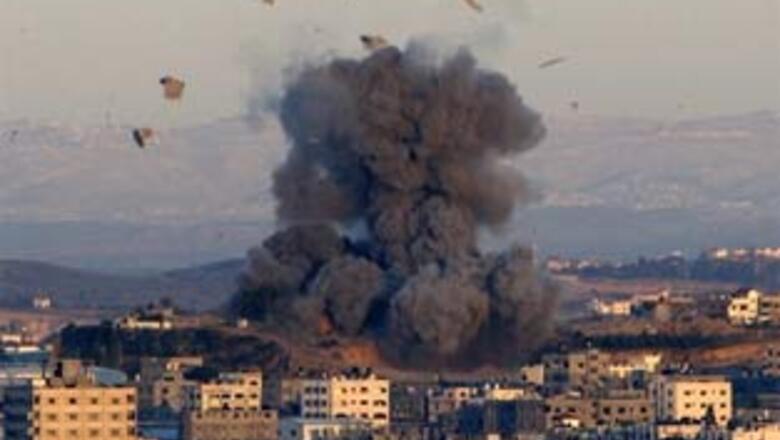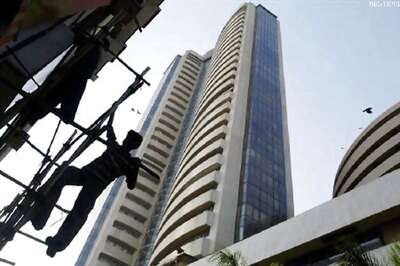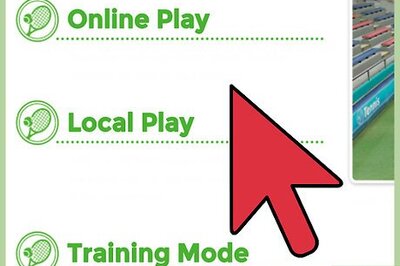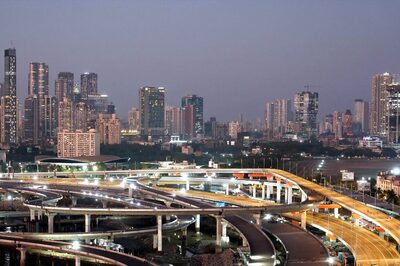
views
Caracas: Venezuela ordered Israel's ambassador expelled from the country on Tuesday in protest over the Israeli military offensive in the Gaza Strip.
The decision by President Hugo Chavez to kick out the diplomat appeared to be the strongest reaction yet to the Gaza offensive by any country with ties to Israel.
The Venezuelan Foreign Ministry announced the move in a statement, saying it "has decided to expel the Israeli ambassador and part of the Israeli Embassy's personnel."
The Israeli offensive in Gaza has killed nearly 600 Palestinians in ground and air strikes. Israel launched the attacks Dec. 27 to stop Palestinian militants from firing rockets into southern Israel.
"How far will this barbarism go?" Chavez asked on state television before the ambassador's expulsion was announced. "The president of Israel should be taken before an international court together with the president of the United States, if the world had any conscience."
Venezuela's Foreign Ministry said its U.N. mission is joining with other countries in demanding the Security Council "apply urgent and necessary measures to stop this invasion."
Israeli diplomats could not immediately be reached for comment. The embassy in Caracas was closed, and it was unclear how the Israeli government would respond.
Jewish community leader Abraham Levy, president of the Venezuelan Confederation of Israelite Associations, called the government's decision "taking the side of a terrorist group" by backing Gaza's Hamas leaders while ignoring Israel's perspective.
"I deeply lament that decision made by the government, which cuts off an enormous and long tradition of friendship between the people of Israel and the people of Venezuela," Levy told The Associated Press.
He said the decision leaves Venezuela's Jewish community — which numbers nearly 15,000 — "not only worried but also deeply battered" because it "attempts to demonize the state of Israel."
While many countries have protested Israel's offensive, none besides Venezuela so far have expelled the ambassador.
Mauritania, which established relations with Israel in 1999, called home its ambassador from the Jewish state on Monday.
Jordan and Egypt, the other two Arab nations with relations with Israel, summoned their Israeli ambassadors to protest the Gaza attacks, but they have resisted popular calls to expel them.
Chavez has long been critical of the Israeli government's policies in the Middle East and has supported the Palestinians' stance in the conflict.
During Israel's 2006 conflict in Lebanon, Chavez withdrew his top envoy from Israel, calling the bombings there "a new Holocaust." Relations have remained at a scaled-back level since.
Chavez's condemnations of Israel's offensive in Gaza have grown gradually more severe in recent days. On Monday he called the Jewish state a "genocidal government," and on Tuesday urged Jews in Venezuela to take a stand against the Israeli government.
In spite of harsh criticisms of Israel, Chavez's government has insisted it is friendly toward Jewish people. Chavez met with Jewish leaders in August, pledging to work against anti-Semitism despite strong differences on Mideast politics.
Top Venezuelan officials explained Tuesday's decision speaking to cheering supporters at a Caracas mosque. Some in the crowd chanted "Gaza, hold on. The people are rising up!"
Foreign Minister Nicolas Maduro said Venezuela declared the Israeli ambassador "persona non grata" and decided to "reduce to a minimum the representation of this embassy in Venezuela."
Justice Minister Tarek El Aissami, who is of Arab descent, said "our revolution is also a revolution for a free Palestine!"
Chavez accuses Israel of acting on behalf of the United States in the Mideast, and he has forged close ties with Israel's top enemies — Iran and Syria.
Chavez also has used the tool of expelling an ambassador before. Last September, he kicked out U.S. envoy Patrick Duddy saying it was in solidarity with Bolivia, which also booted its U.S. ambassador, accusing him of aiding violent protests.
Demonstrations against the offensive have been held in various Latin American countries in recent days.
In Argentina, which has the third-largest Jewish population outside Israel, hundreds of people marched to the Israeli Embassy to call for an end to the offensive.
Brazil's government, like Venezuela, has said it is sending food and medical aid to the Gaza Strip. And in Bolivia, about a hundred Palestinians and Arabs marched to protest the violence.



















Comments
0 comment